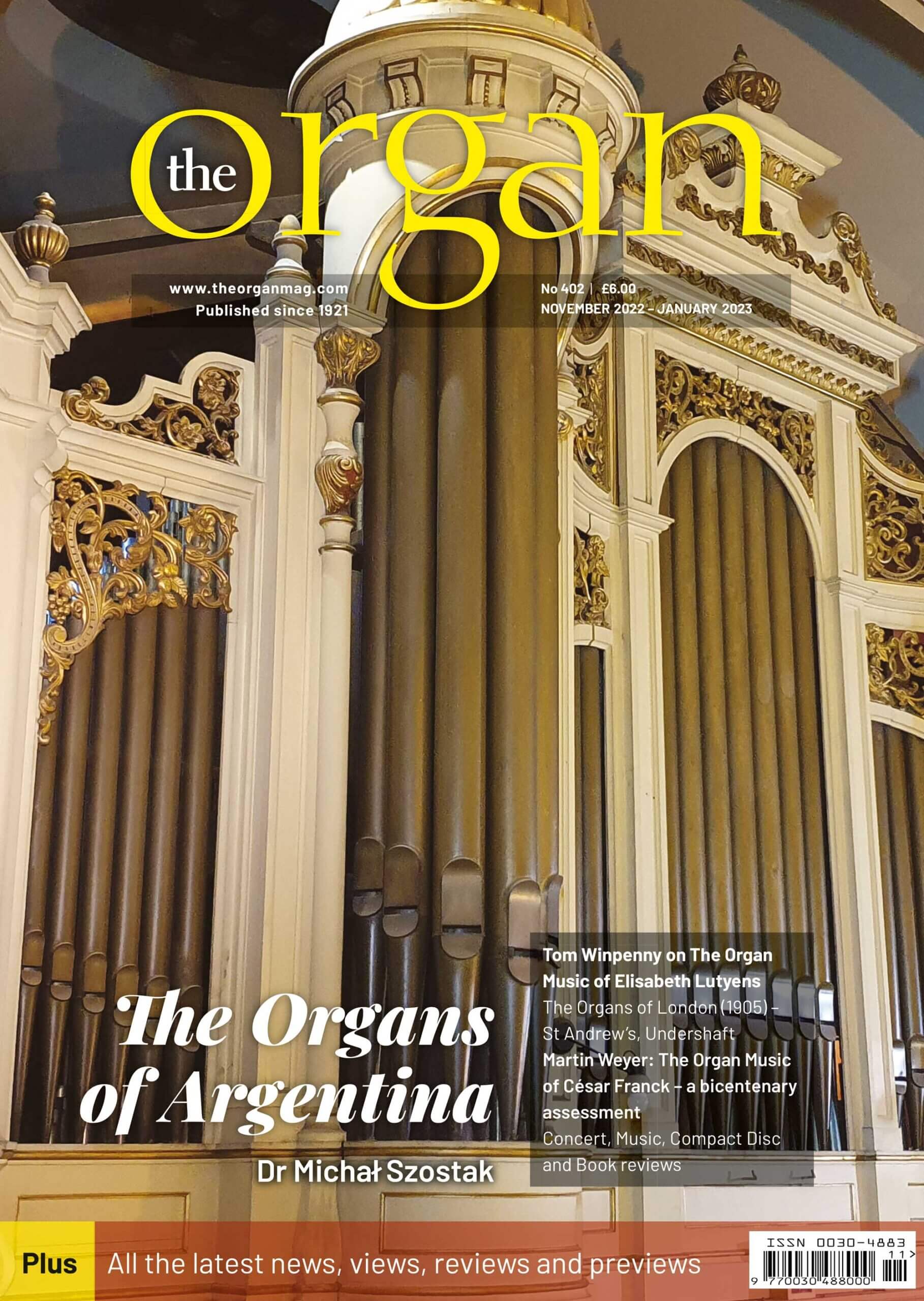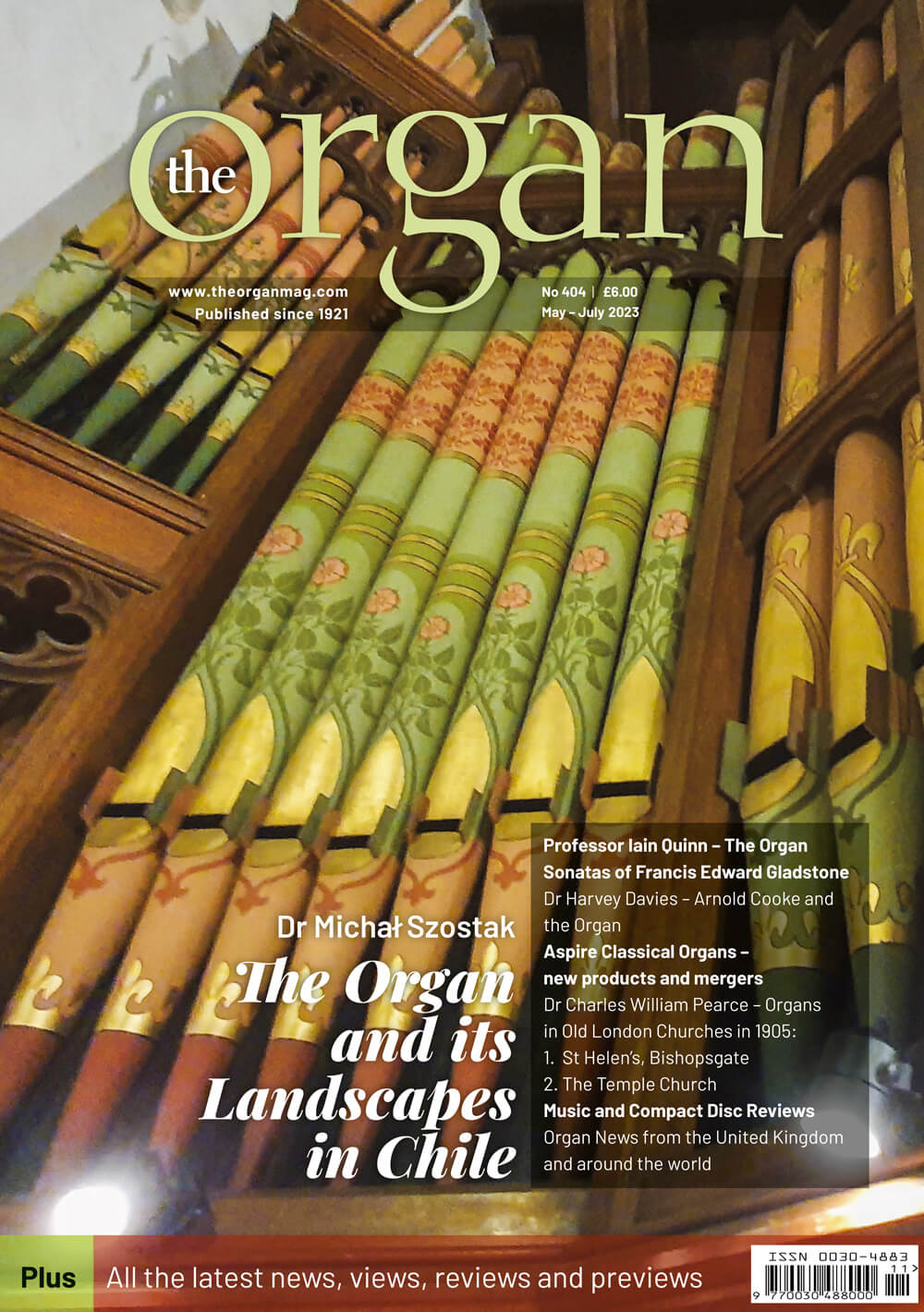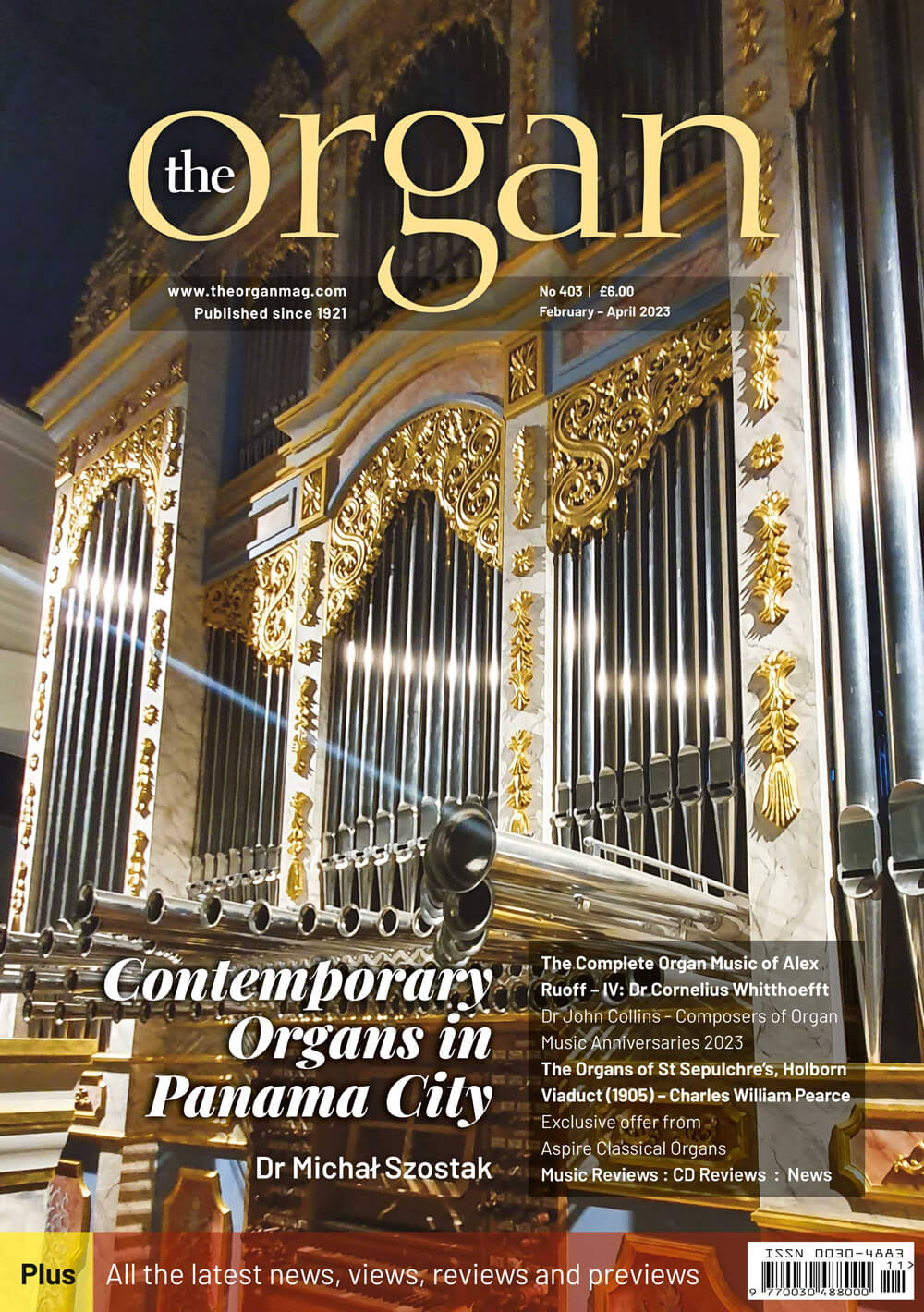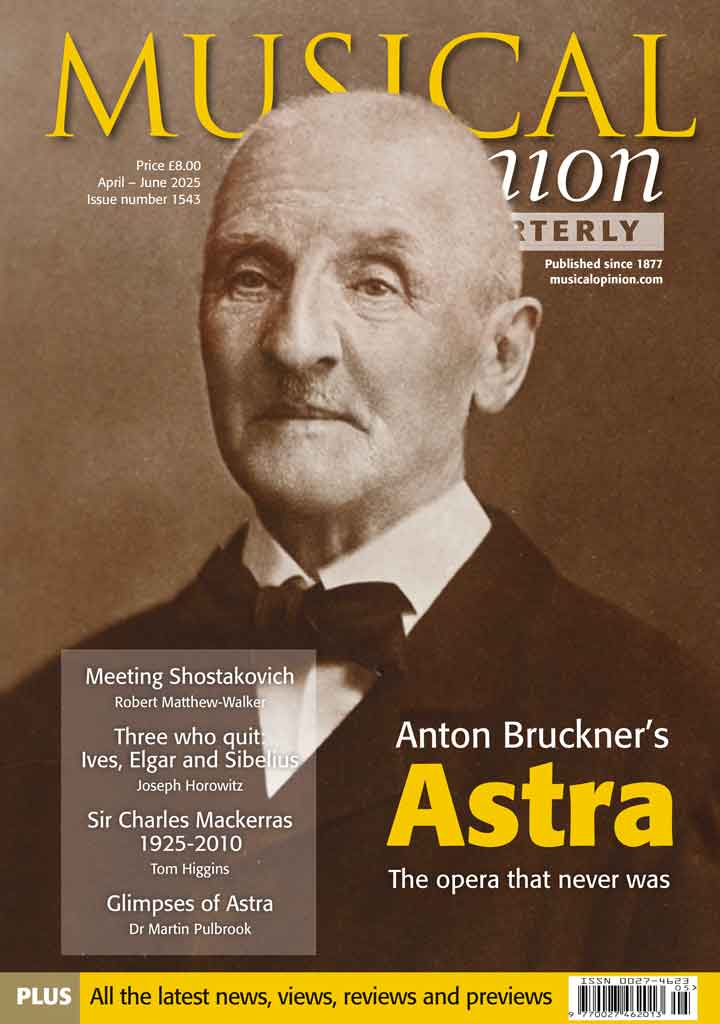

Current Issue
Reviews
Munich Bavarian State Opera – Donizetti: The Daughter of the Regiment
The last new production of Donizetti‘s opéra-comique La Fille du régiment at the Bavarian State Opera was in German (as Die Regimentstochter) and dates from September of 1935. The nearly 90-year gap is at least partly due to a general rejection in Germany of anything...
Handel: Jephtha: Royal Opera House, London
‘That whatsoever cometh forth of the doors of my house to meet me, when I return in peace from the children of Ammon, shall surely be the Lord’s, and I will offer it up for a burnt offering.’ Such is the vow of Jephtha, the eponymous hero of Handel’s final Oratorio....
Guest Editorial
Britten: Death in Venice
Marx in London!
Scottish Opera Glasgow – Jonathan Dove: Marx in London! This opera was first heard at the Stadttheater Bonn in 2018 in a staging by Jürgen R. Weber in commemoration of Marx’s 200th anniversary. Weber’s production is a satirical account of one day from Marx’s life in...
Berlin Staatsoper unter den Linden – Wagner: Tannhäuser
What happens when an opera house asks a ballet dancer and choreographer with her own dance company to produce an opera? There is a lot of ballet where normally there is not, and there is hardly any Personenregie. Tannhäuser has a place for ballet, normally given to...
ENO – Rhinegold
Wotan may be a god, but he never strikes me as the brightest button in the box. His decision to give away Freia as payment to the giants for Valhalla, his castle in the sky, has clearly not been thought through. So too is the Arts Council’s decision to uproot English...
Bari – Teatro Petruzzelli: La Traviata
Is it possible the there is one Musical Opinion reader who has never seen La Traviata? And maybe is it also possible this reader has not formed an opinion about the central character before even seeing the opera? And maybe this reader also has a great degree of...
Opera North: Rigoletto
If you stroll around the ever-expanding Salford Quays complex these days, you will see a very different Media City to the one when the Lowry Theatre first opened more than 20 years ago. BBC and ITV studios, hotels, bars, restaurants, apartment blocks, trams and an...
New Recital Series at Leighton House from Lisa Peacock Concert Management
Lisa Peacock Concert Management Ltd announces the greatly anticipated appearance in London of Juan Pérez Floristán, Gold Medallist of the Arthur Rubinstein International Piano Master Competition 2021 in music by Chopin, Liszt, Wagner/Liszt and Beethoven on Saturday...
Explore By Topic
The Ring Cycle in Sofia, Bulgaria
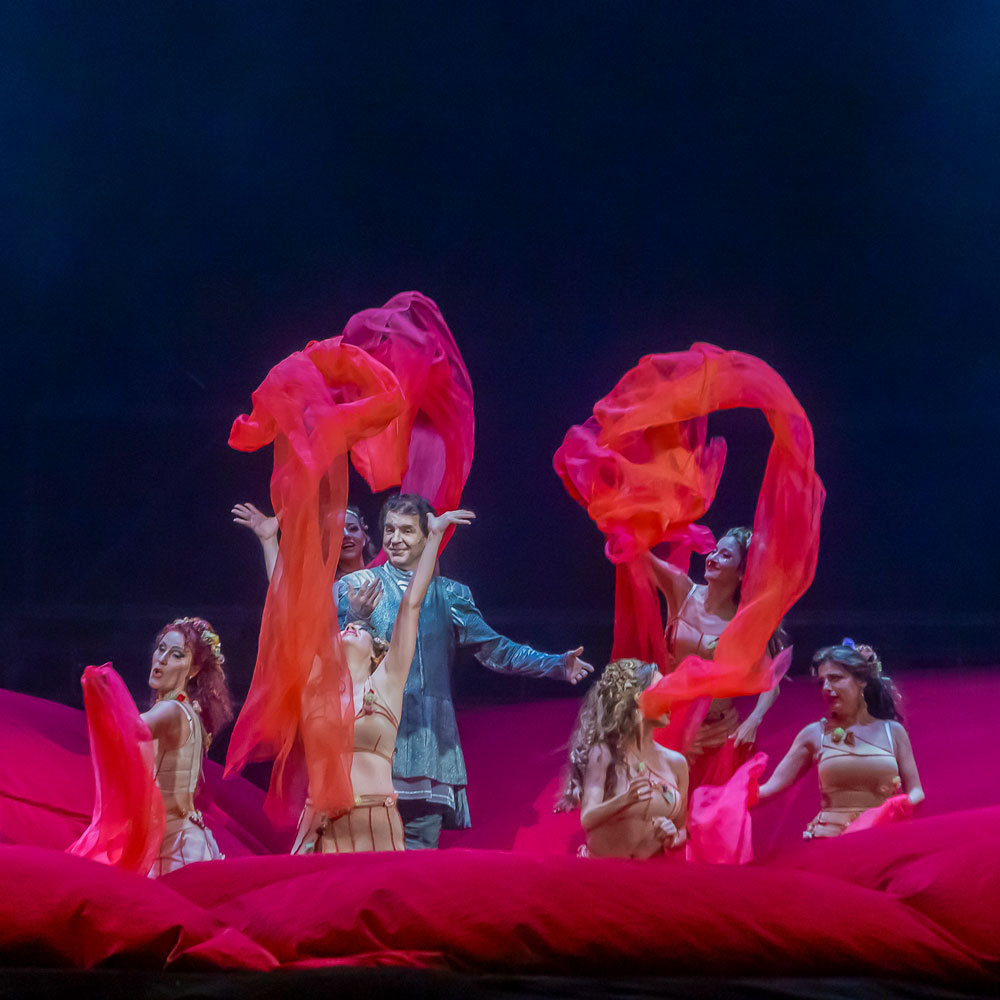
Parsifal
Parsifal was the sixth Wagner opera to be produced at the Sofia Opera by Plamen Kartaloff in his mission to develop a Wagnerian tradition in Bulgaria. First staged in 2015, the preparation for the opera was assisted by Richard Trimborn. Kartaloff believes that ‘the main character, Parsifal, is above everything and everyone, beyond the existing anxieties and sufferings of the other characters. He is naïve and opposed to all and existing things, the real and the ideal belongs to them. Thus the meaning and the secret of the feast of the sacrament can only be revealed to those who are called upon to serve it. Parsifal is a mystery of parallel worlds.’
Following the gorgeously performed prelude, it was clear the orchestra has notably improved since the Ring cycle under the baton of Trinks. The first scene of Act One opened to show an enchanting picture of blues and greens as if we are in a woody glade conveyed with light projections against the drapes through which the different characters emerged and left. The Gurnemanz of Angel Hristov entered attired in a simple white garb which is common throughout almost all of the cast. Hristov has a deeply resonant bass voice carrying all the weight of his authority. Following his monologue, the wounded Amfortas entered on a wheeled chariot carried by the pilgrims. Suddenly, Kundry dramatically entered dressed in a costume of rags and wild hair. Rusekova quickly revealed that she has a splendidly vibrant mezzo voice, combined with outstanding acting, and the lyric tenor of Atanas Mladenov’s Amfortas portrayed all the terrible plight of his character in a deeply moving characterisation. An enormously successful device was the projection against the backdrop of the ghostly figures of the pilgrims, knights as they were in prayer or singing. The lighting of Andrej Hajdinjak and the laser animation by Michael Sollinger was highly effective in illuminating the stage action throughout the performance.
The entry of the knights and the squires was overwhelmingly powerful as they slowly made their way on stage against the steady accompaniment of the superb orchestral playing. Gurnemanz’s narration of the tale of the Holy Spear and the Holy Grail led to the story of the hero Titurel, the father of Amfortas, and of Klingsor and his dark arts, and the magic garden where maidens enchant the knights away from the holy order.
The Parsifal of Kostadin Andreev appeared as the foolish knight wandering around wondering what is going on. Suddenly the wounded swan throws himself to the ground followed by Parsifal in a striking picture of youthful innocence. The charms of Kundry now tells him of his backstory. In the change to scene two, the transformation passage is marvellously performed by the orchestra under Constantin Trinks and the castle scene is movingly dramatic as the knights bring in the grail which is an angular wooden box containing the sacred entity. Titurel’s voice is heard from off stage, ‘Mein Sohn Amfortas, bist du am Amt?’ Shamed by his terrible fate, Amfortas in begging forgiveness, uncovers the Grail and the knights, and squires raise their vessels to the sky as the scene becomes transformed with bright rays descending in a powerful scene of worship with exquisite heavenly voices from above, again this scene is immensely powerfully enacted through the lighting projection of spectres moving across the stage, and eventually the tortured Amfortas is led away and the choral singing of ‘Wein und Brot des letzen Mahles’ is serenely moving.
In Act Two, Klingsor’s castle is a metal structure decorated by strip lighting, and from the battlements, Klingsor summons Kundry, ‘Dein Meister ruft:herauf!’ Gergana Rusekova’s Kundry is dressed more stylishly, and she is told to seduce Parsifal so he may reclaim the Grail. In a well-enacted fight scene, Klingsor’s knights enter combat with Parsifal who defeats them with ease, and in a well arranged transition, the castle is replaced by a scarlet red cushion where the flower maidens cavort with men engaging in vigorous activity in this garden of delights. Despatching the young men, Kundry entices the young fool of Parsifal by singing of life’s joys and of other ravishments. She is now in a beautifully seductive red and black costume. The scene closes dramatically with Klingsor throwing the spear at Parsifal, who catches it in a miraculous moment of thunder.
The resplendent strings of the orchestra introduce the first scene of Act Three, where we see the aged and weary Gurnemanz, while Kundry is lying lifelessly in a white smock. He pitilessly drags her up, yet she sings and suddenly Parsifal appears dressed in armour with the spear. Admonished for bringing arms on Easter Sunday, Kundry tells him that it is indeed he, the fool who has returned. Parsifal sings, ‘Heil mir, dass ich dich wiederfinde!’ Recognising the saviour has arrived in the person of Parsifal, Gurnemanz rejoices that he can perform the healing with the spear on Amfortas, ‘O Gnade! Höchstes Heil!’ As midday approaches, in a wonderful scene, Amfortas with the knights and pilgrims arrive in an intensely enacted passage and encircle Amfortas with the now opened grail. As Parsifal and Kundry enter with the spear raised upon Amfortas – he is now miraculously cured, ‘Sei heil, entsündigt und gesühnt!’ Parsifal takes his place at the centre, lifting the spear to the heavens as magical rays beam down on the worshippers and the glorious celebratory climax.
This was a fine production true to the composer’s vision, and with traditional methods yet containing innovative technology allowing the audience to appreciate the narrative, the singing together with the marvellous orchestral picture. The scenic beauty of the sets, and the vibrant colours of both costumes combined with outstanding singing/ acting ensured this revival was another success for the Sofia Opera.
Of the singers, the most outstanding was Mladenov’s Amfortas with his beautifully lyric tenor and supreme acting, the Gurnemanz of Angel Hristov was deeply convincing with his portrayal and a voice to match in his noble bass voice. The Kundry of Gergana Rusekova was world class in both singing and characterisation – every word was clear and beautiful at times showing her plight and in other scenes of her lustful desire. The title role of Parsifal was magnificently characterised by Kostadin Andreev, yet again playing the fool who gains manhood and maturity at the end of a challenging operatic masterpiece. And most of all, the chorus and orchestra were outstanding in presenting a superbly musical accompaniment to Wagner’s masterpiece.

